
Throughout the COVID-19 pandemic, local decision makers have had to act quickly to address challenges impacting our communities – often with limited information, making it difficult to fully consider the long-term impacts of the pandemic and our response measures. Central Ohio is now taking a closer look at the economic, social, and growth impacts of the pandemic on our region.
This series of policy briefs includes data and analyses that examine the most pressing issues on a variety of topics – especially as they relate to factors contributing to racial and income inequities that were exacerbated by the pandemic.
The briefs will spur broader discussions about the community’s long-term recovery among policymakers, nonprofit organizations, issue-based advocates, and community leaders to ensure a successful recovery for Central Ohio.
We extend our thanks to all the partner organizations who contributed to this effort.
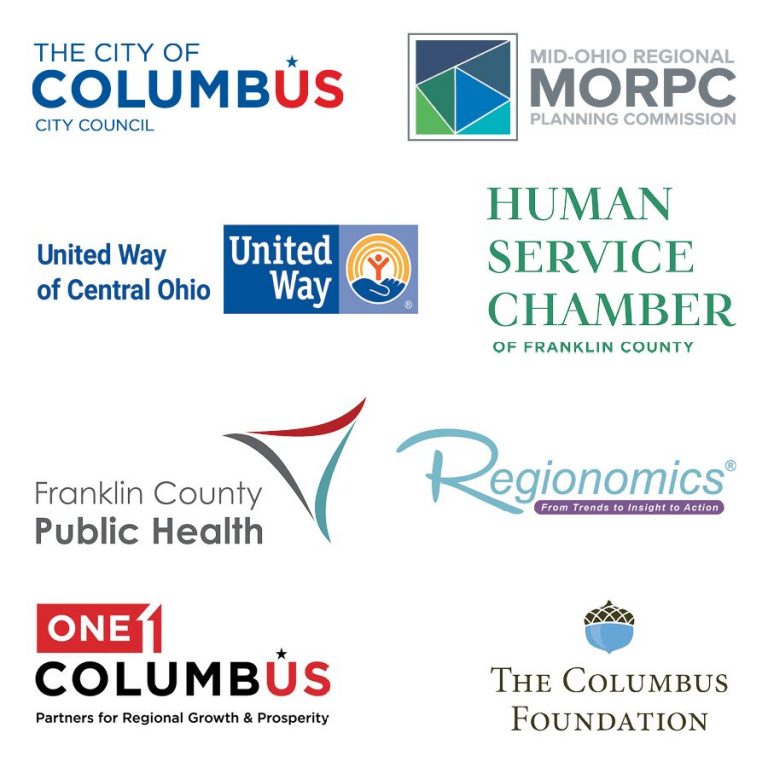
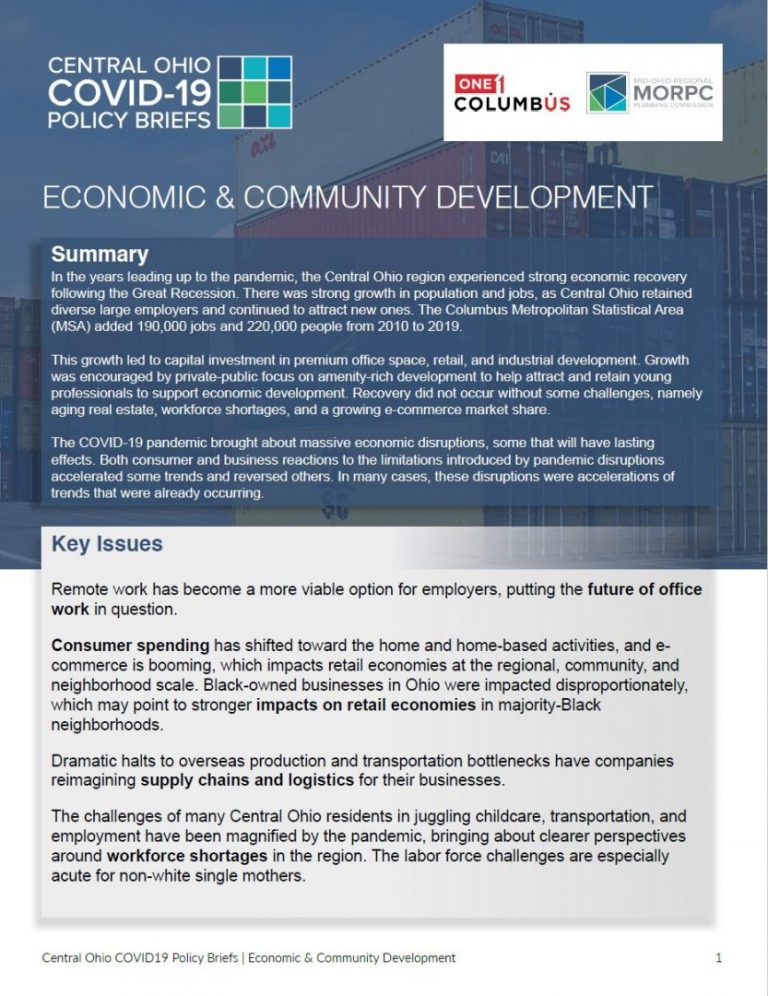
The COVID-19 pandemic brought about massive economic disruptions, some that will have lasting effects. Both consumer and business reactions to the limitations introduced by pandemic disruptions accelerated some trends and reversed others.
The COVID-19 pandemic initiated a historic economic collapse, including a rapid 14% employment decline in a single month. A recovery is in progress but is only partial. There remain concerns about unemployment, especially among those who were already struggling, and the long-term impacts to the region’s small businesses.
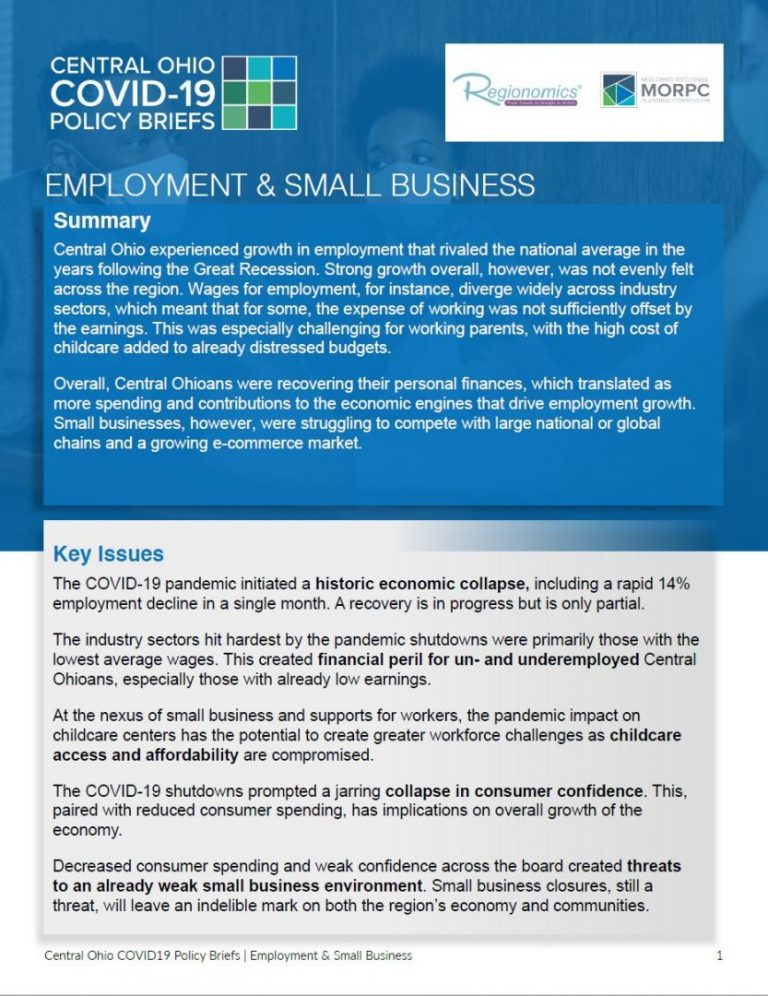
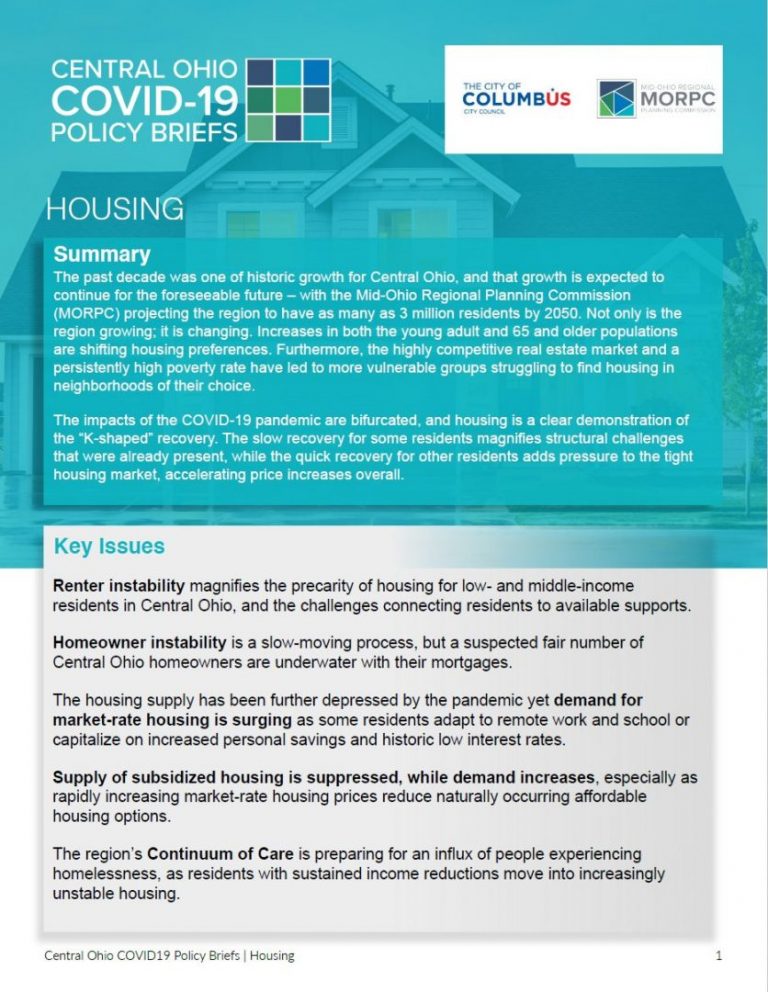
The impacts of the COVID-19 pandemic are bifurcated, and housing is a clear demonstration of the “K-shaped” recovery. The slow recovery for some residents magnifies structural challenges that were already present, while the quick recovery for other residents adds pressure to the tight housing market, accelerating price increases overall.
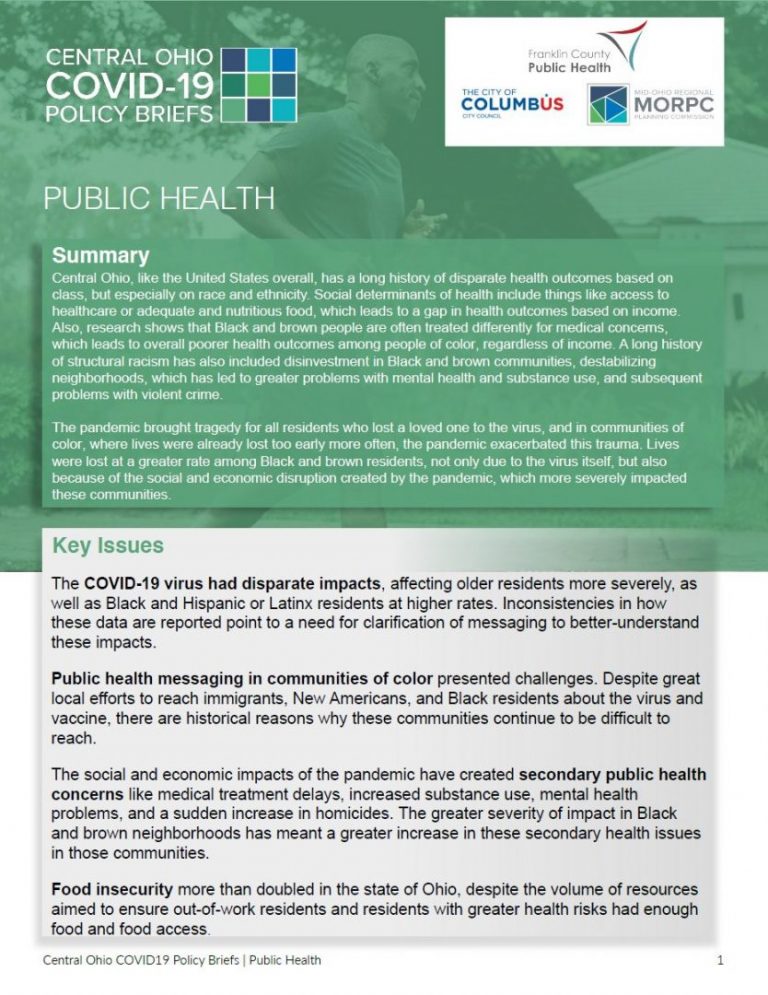
The pandemic brought tragedy for all residents who lost loved ones to the virus, and in communities of color, where lives were already lost too early more often, the pandemic intensified this trauma. Lives were lost at a greater rate among Black and brown residents, not only due to the virus itself, but also because of the social and economic disruption created by the pandemic, which more severely impacted these communities.
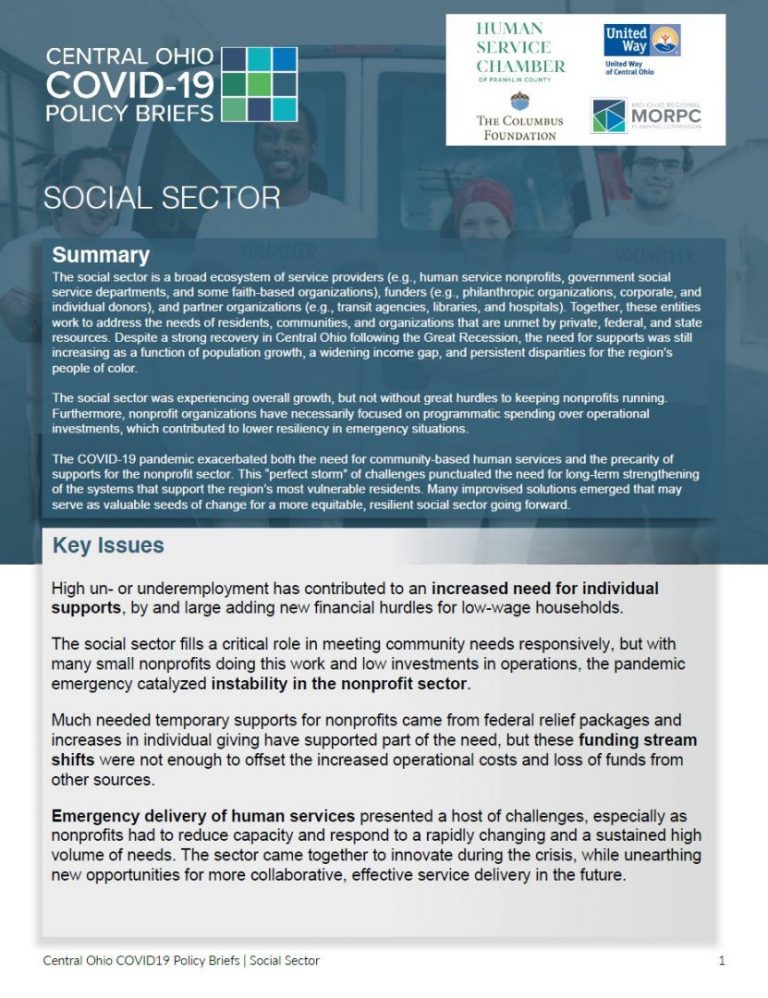
Central Ohio’s generosity, as shown by nonprofit organizations, corporate and philanthropic institutions, and individual giving, has been inspiring. Yet, the COVID-19 pandemic increased both the need for human service supports and the precarity of the nonprofit sector. This “perfect storm” of challenges punctuated the need for long-term strengthening of the systems that support the region’s most vulnerable residents. Many improvised solutions emerged that may serve as valuable seeds of change for a more equitable, resilient social sector going forward.
Virtual life went from convenience to necessity when the pandemic shutdowns began in March 2020. Seemingly overnight, digital equity became a top priority, as many individuals, businesses, and institutions lacked the connectivity, equipment, and skills necessary to keep up in a by and large remote world.
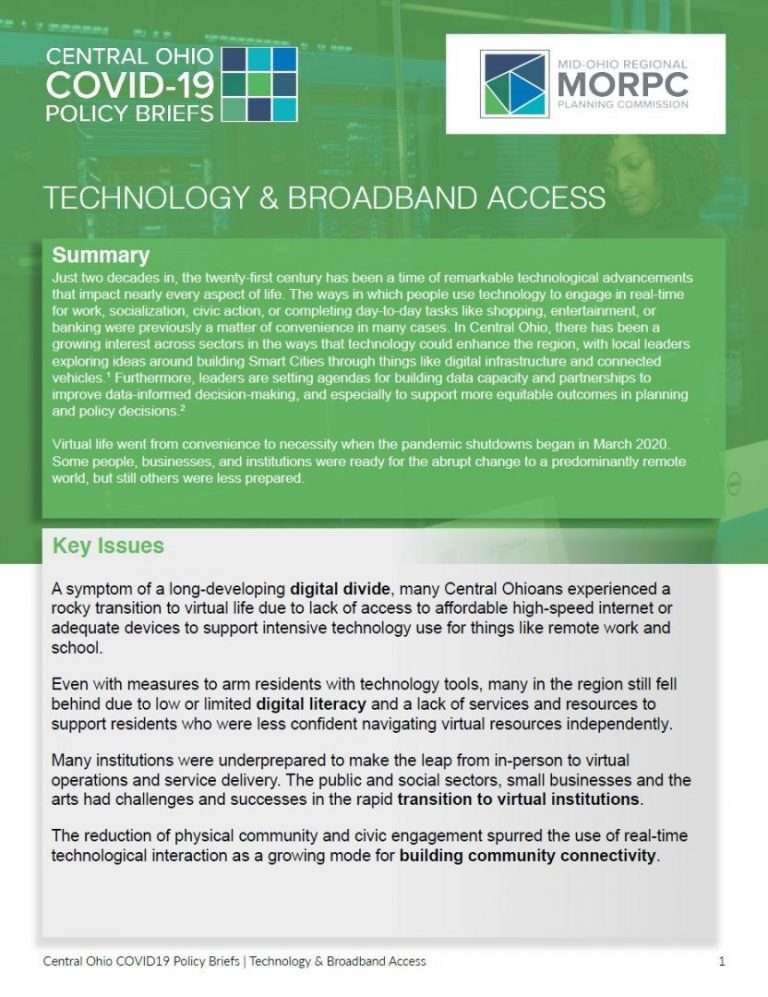
The pandemic agitated transportation dynamics across modes and has left an indelible mark on the balance of the transportation system of the future. Shutdowns of businesses and services, as well as individuals’ personal health concerns provoked changes in transportation behavior across the board – residents, students, workers, businesses, and institutions.
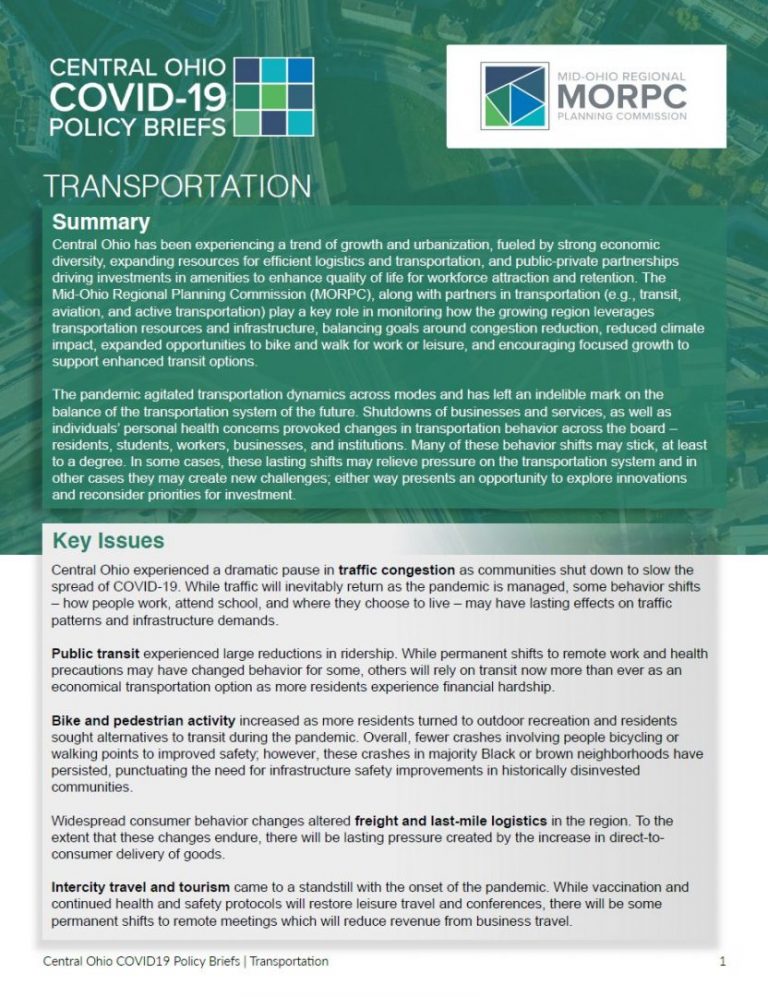
Identifying and understanding the lasting effects of the COVID-19 pandemic in Central Ohio is an important step, to be sure. However, the information presented in these briefs is only valuable to the extent that it informs the efforts of community leaders and organizations toward an equitable recovery. With the many challenges created or compounded by the pandemic come opportunities for new paths forward – rather than rebuilding the same unequal systems, there is a chance to center recovery efforts on creating a more socially, racially, and economically equitable region.
Throughout the spring and summer of 2021, MORPC will be joining other community partners in a series of conversations about the policy briefs and strategies to address the issues they cover. Below is a listing of planned conversations and opportunities to engage – please check back regularly, as the list will be updated as new events are scheduled. We also encourage you to use the briefs as a resource in your own discussions about our community’s recovery, be it within your organization, with other community partners, or with your neighbors.
If you would like to learn more or to co-host a conversation with MORPC, please contact Liz Whelan-Jackson at lwhelan@morpc.org.